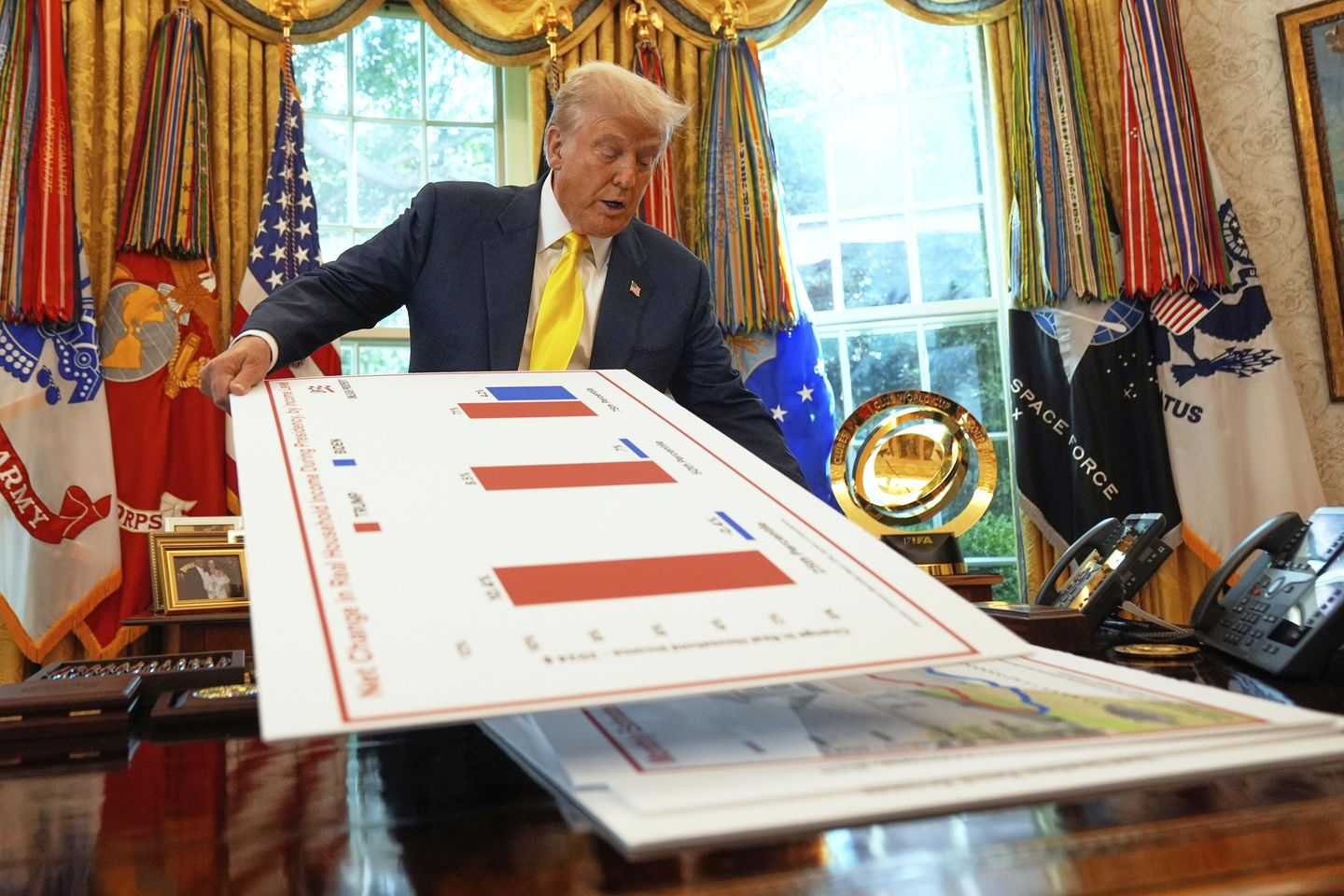
President Trump on Thursday ended collective bargaining with several federal unions with national security missions.
Mr. Trump signed an executive order using authority granted by the Civil Service Reform Act of 1978 (CSRA) to end these collective bargaining agreements.
The administration ceased a Collective Bargaining Agreement with the union representing Hydropower Facilities in the Bureau of Reclamation.
The White House said, “Energy security is a critical national security mission. The Bureau of Reclamation operates 53 hydropower plants that generate enough electricity to power 3.8 million homes.”
“These hydropower plants provide critical black start capacity (the ability to resume operations without requiring external power). This is important for restarting the electric grid in case of a major outage.”
NASA also had its union’s collective bargaining agreement ended Thursday.
The White House says the space agency develops and operates “advanced air and space technologies, like satellite, communications, and propulsion systems, that are critical for U.S. national security.”
The National Environmental Satellite, Data, and Information Service (NESDIS) and National Weather Service (NWS), each part of the National Oceanic and Atmospheric Administration, lost their unions’ collective bargaining agreement.
NWS was first established as a subdivision of the U.S. Army Signal Service Corps.
Presently, NWS and NESDIS provide weather and climate data that inform the weather forecasting used to plan U.S. military deployments.
“Weather forecasts have long been critical factor in the success or failure of military operations,” the White House said.
The union representing the Office of the Commissioner of Patents, part of the Patent and Trademark Office, lost its collective bargaining agreement as well in this order.
The order says that the Invention Secrecy Act tasks the PTO with reviewing inventions made in the U.S., gauging whether their release could harm national security, and if so, issuing secrecy orders that prevent public disclosure.
“Effectively performing this work is essential to ensuring U.S. inventions with military or other national security applications do not fall into enemy hands,” the White House said.
The final agency in the order whose union lost collective bargaining power is the U.S. Agency for Global Media (USAGM).
The White House considers the USAGM as an arm “of U.S. public diplomacy; supporting U.S. national security is one of its key functions.”
Everett Kelley, national president of the American Federation of Government Employees, said Mr. Trump’s latest executive action shows his true regard for the working class.
“President Trump’s decision to issue a Labor Day proclamation shortly after stripping union rights from thousands of civil servants, a third of whom are veterans, should show American workers what he really thinks about them,” Mr. Kelley said.
“This latest executive order is another clear example of retaliation against federal employee union members who have bravely stood up against his anti-worker, anti-American plan to dismantle the federal government.”
Mr. Kelley also said that “several agencies including NASA and the National Weather Service have already been hollowed out by reckless DOGE cuts, so for the administration to further disenfranchise the remaining workers in the name of ‘efficiency’ is immoral and abhorrent.”
Certain procedural requirements in federal labor-management relations can create postponement in agency operations, and collective bargaining agreements remain in effect until their expiration, limiting agencies’ ability to modify policies promptly.
These delays can affect the ability of agencies with national security responsibilities to implement policies swiftly and fulfill their critical missions.
Even when changes are permissible, the White House noted, under Collective Bargaining Agreements, agencies must complete “midterm” union bargaining, which can delay the implementation of time-sensitive national security measures.

















